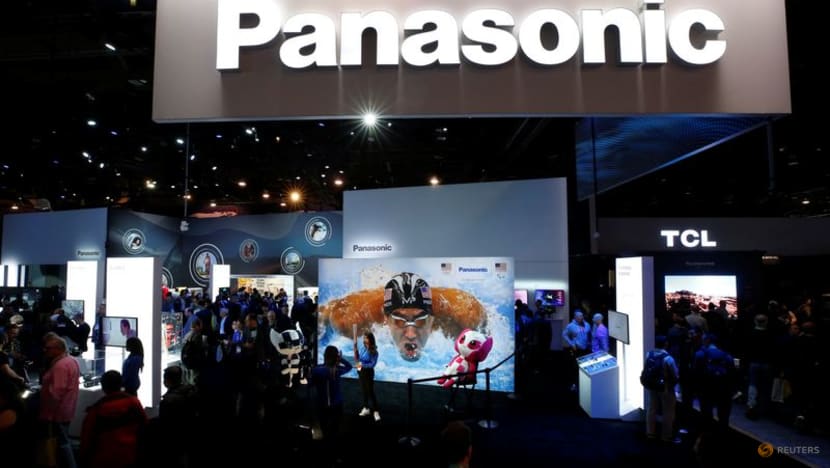Japan's Panasonic targets 10,000 job cuts worldwide

The Panasonic booth is shown during the 2020 CES in Las Vegas, Nevada, US on Jan 7, 2020. (File photo: REUTERS/Steve Marcus)
TOKYO: Japanese electronics giant Panasonic, which supplies batteries to Tesla, said on Friday (May 9) it will target 10,000 job cuts worldwide as part of efforts to boost profitability.
The cuts, which represent around 4 per cent of the group's workforce of nearly 230,000, will be implemented mainly in the current financial year to March, it said.
Panasonic said it would "thoroughly review operational efficiency at each group company, mainly in sales and indirect departments".
It will "reevaluate the numbers of organisations and personnel actually needed", a statement said.
"This measure targets 10,000 employees (5,000 in Japan and 5,000 overseas) at consolidated companies," and will be executed "in accordance with the labour laws, rules, and regulations of each country and region".
The cuts will come through consolidation of sales and indirect operations as well as sites, business terminations and employees in Japan taking early retirement, it said.
It said it expects to book restructuring costs of ¥130 billion yen (US$896.06 million) this business year as part of the overhaul.
The company's restructuring seeks to achieve a return on equity - a measure of profitability - of 10 per cent by the fiscal year ending in March 2029.
Panasonic also said it will target a group adjusted operating profit of at least ¥600 billion in the fiscal year to March 31, 2027, partly due to a revamp of its consumer electronics business, termination of loss-making businesses and streamlining of IT investments.
Almost half of the restructuring costs will be booked in its Lifestyle business, which includes home electronics and heating and ventilation systems, and another 40 per cent in "other" businesses, including its holding company. It did not expect to book any restructuring costs in its energy business.
Panasonic became a global household name in the latter half of the 20th century, pioneering electronic appliances from rice cookers to televisions to video recorders.
The Osaka-based conglomerate is a major battery supplier for Elon Musk's US electric vehicle maker Tesla, and also operates in the housing, energy and auto sectors.
Panasonic in February outlined a management reform programme to resolve "various structural issues" at the company.
"Through the current management reform, the company aims to improve profit by at least ¥150 billion (US$1 billion)," it said on Friday.
In its full-year earnings report, also released on Friday, Panasonic forecast a 15 per cent decline in net profit this year, and an 8 per cent slump in sales.
In the financial year to Mar 31, 2025, the group logged a 17.5 per cent decline in net profit to ¥366 billion.
Panasonic is facing "ongoing business environment changes (such as) a slowdown in demand for EVs", it said.
As for US trade tariffs, "their impact is not factored into this forecast", Panasonic added.
"The company continues to monitor the tariff situation and aims to minimise the resulting impact by taking measures from both short-term and medium- to long-term perspectives."
In an interview published in April, Panasonic Holdings CEO Yuki Kusumi told Japan's Nikkei newspaper that personnel cuts would be necessary, without detailing their scale.
Job cuts would be needed "in order for us to perform at a competitive level against other firms", he told the Nikkei.
In Panasonic's history, the group has also gradually expanded its headcount during profitable periods, Kusumi stressed.














